Memories of the Last Coronation
Queen Elizabeth’s coronation is one of my first memories; I was four. No one in our street had television, so huddling around the screen was not the way we experienced it. First we had a parade up and down our street, then cakes, jelly, and pop in a street party aimed mainly at the kids. And after that, the children went to a film show of cartoons at a local sports pavilion.
The thing that made the biggest impression on me was the flags. Everyone had a paper union jack. I have no memory of having seen one before, but against the drab brick semi-detached housing of the outer West London suburb of Greenford, it was an extraordinary splash of colour. It made a big impression on me. There was no inkling at all that loyalty to the Queen was anything other than automatic. The love of royalty reached deep into our family, at least on my mother’s part. I was named after Prince Philip, and my sister was named after Princess Margaret.
A Vibrant Celebration: Flags and the Coronation
I got two paper flags and kept them in my bedroom. Over the whole country, the ubiquitous Union Jack was a demonstration of the ideological power of symbols—reactionary signs replete with loyalty, empire, and militarism—as well as the tremendous power of the royalty mobilised to ensure allegiance to these key aspects of state ideology. It was as natural to support the British army as it was to support the England rugby and cricket teams, which I still do despite myself. I could no more bring myself to support Australia in an Ashes series than I could vote for the Conservative Party.
“The ubiquitous Union Jack was a demonstration of the ideological power of symbols—reactionary signs replete with loyalty, empire, and militarism—as well as the tremendous power of the royalty mobilised to ensure allegiance to these key aspects of state ideology.”
The power of symbols was brilliantly utilised by the designer of the CND peace symbol, Gerald Holton, who did it for the campaign in 1958. It’s a symbol that has taken on a life of its own, with many more connotations than support for nuclear disarmament.
Symbols, Military, and Loyalty to Royalty
A couple of years after the coronation, I was taken to see Trooping the Colour on the Horse Guard’s Parade. I was puzzled about what the colour was and why it had to be trooped. But the 2000 soldiers from the Brigade of Guards, in their red tunics and busby hats, and the 200 horses taking part also made an enormous impression. Later, I was taken to see the guards at Buckingham Palace and Windsor; in those days, they stood outside the railings in sentry boxes, and you could see them up close. I was very concerned about the difference between the Guards’ regiments. In what way were the Coldstream Guards different from the Grenadiers? No one knew. And were all the soldiers in the Scots Guards actually from Scotland? It appeared not. All very strange.
These events occurred no more than a decade after the Second World War. The cinema was full of WWII films, which mainly glorified the British military. The Dam Busters was a hugely popular movie, depicting the 1943 bombing raid against the Möhne, Edersee, and Sorpe dams above the Ruhr valley, the centre of German industry.
Fifty-three British air crew members were killed in the raid, along with at least 1300 German civilians who drowned when the dams were breached. Not a lot was made of these losses in the film; in fact, the German casualties were not mentioned at all. The music for the film, the Dam Busters march, literally brought tears to my eyes and probably to millions of my fellow citizens.
At this time, you still had to do two years of military service. And there were hundreds of thousands of people who had been in the forces during the recent war, or indeed, young conscripts who had fought in Korea. All these things helped to reinforce patriotism and support for the military.
When I was eight, my mother went into the hospital for nearly a year, and I was sent to live with my grandparents in Radstock, ten miles outside Bath. My grandfather, like many men in the countryside, had a rifle and hundreds of rounds of ammunition. He and I used to fire at targets at the end of the garden, totally irresponsibly, because the odd shot that totally missed the target would have gone for hundreds of yards. We went out into the local fields looking for pheasants to shoot, but never hit any of them.
Staying with my grandparents boosted my fascination with guns, which was ‘normal’ for boys in the ‘50s. Toy guns, some near replicas, were in all the shops that sold toys, and fired ‘caps’ – strips of very small amounts of gunpowder that made your gun go ‘bang.’
The next stage in my ‘loyalty to royalty’ training was a school visit to the Tower of London. The climax of which was seeing the Crown Jewels, many of which will be on display at Charles’ coronation. These crowns, orbs, and maces glittered literally like magic. A year later, I went on a school journey to Swanage, and one of the local visits was the Bovington Tank Museum. I still have the tab photos taken that day.
In addition to the toy guns most boys had, many collected plastic model soldiers, most of them replicas of the British army. A huge percentage of boys knew the difference between a Bren gun and a Stem gun, key weapons of the British infantry.
The Changing Landscape of Royal Influence
After 70 years, has the ideological grip of royalty worn off? Yes and no. In the upcoming Coronation, there will be a mass swearing of loyalty to the King. The ideological role of that is self-evident. But all the opinion polls show that republicanism now has mass support. In a recent poll, more than 40% of 18- to 24-year-olds thought the monarchy should be abolished, as opposed to 31% who thought we should keep it.
“In the upcoming coronation, there will be a mass swearing of loyalty to the King. The ideological role of that is self-evident.”
Whenever there is an event like the Coronation or a royal funeral, support for royalty shows an uptick. Which slumps right down a couple of weeks after it’s all over. But in a sense, that’s not the point. Royalty and the grovelling deference shown to the royals play a massive role in cementing ideologies based on rank and class. This deference is displayed to the 2000 or so people who have aristocratic titles, but now, much more than in 1953, to people who just have money. The soap opera-style drama of the royals since the 1990s has dispelled much of the charisma automatically ascribed to people who have a royal title—the sense they are somehow special people, not like us.
“Royalty and the grovelling deference shown to the royals play a massive role in cementing ideologies based on rank and class.”
Guy Debord, author of The Society of the Spectacle, would have had a field day analysing the Coronation. But in the era of celebrity culture, the royals are much less central to the creation and retention of loyalty to the state and the status quo—the grand spectacle of neoliberal capitalism.
Art Book Review Books Campism Capitalism China Climate Emergency Conservative Government Conservative Party COVID-19 Creeping Fascism Economics EcoSocialism Elections Europe Far-Right Fascism Film Film Review Fourth International France Gaza History Imperialism Iran Israel Italy Keir Starmer Labour Party Long Read Marxism Marxist Theory Migrants Palestine pandemic Police Protest Russia Solidarity Statement Trade Unionism Ukraine United States of America War Women
Latest articles
- COP 30: entrenching the crisis of climate politicsHow has COP 30 failed to address the climate catastrophe? Brian Ashley looks at the continued crisis of political solutions to ecological disaster.
- Labour’s budget – further into the abyssRachel Reeves’s budget is business as usual, or rather, slightly worse than that. argues Jamie Gough.
- Your Party exists! Now the hard work begins…Your Party’s founding conference was a battleground between unelected bureaucrats and the left, but in the end it has produced a new socialist and working-class party. Simon Hannah and Terry Conway reports.
- Hands off Venezuela – No to Trump’s warACR condemns Trump’s imperialist attack on Venezuela
- Your Party Founding ConferenceFind all the key information from Anti*Capitalist Resistance for the Your Party Founding Conference. Below is the rolling blog for updates throughout conference.


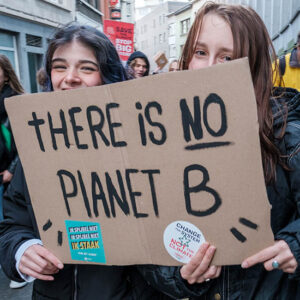
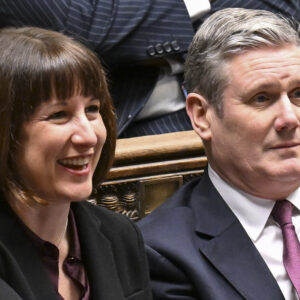
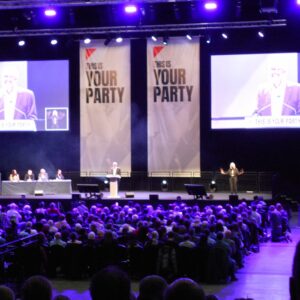
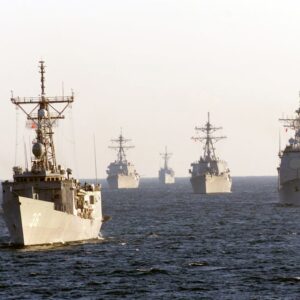
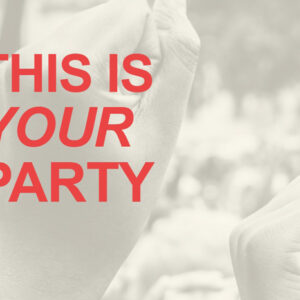
You capture growing up in the ideology of the 1950s into the 60s really well. I remember the things you mention. Do you remember those war comics we would swap in the playgrounds. Churchill’s funeral was a bit thing too. Boys comics like the Victor were important too.